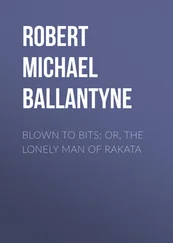52. You couldn’t travel without a permit. Mine was forged, and so when a train finally did arrive, I boarded the caboose and sat in the back. Two boys tried to freeload but were tossed by a female guard so shrill, two other kids gave up the con before she even got there. In North Korea, arrest and gulag are redress for most any crime, but often it depends on who’s watching.
The train was four cars, three of which looked Korean and one that was slightly larger, probably imported from Romania twenty years ago. I doubt it had been serviced since, and for the shrieks issued from the engine, the chassis, God knew, I didn’t think we’d get far. I wore a wool hat, pulled low, and stared through the window, past the black rime cleaved to the pane and at the countryside that could probably walk itself to Pyongyang faster than us.
53. The track skirts the Yalu and cuts into the base of one mountain range after another. My viewing options were this: the relatively prosperous towns on the Chinese side — Tumen looks like Six Flags at night — or the wasted and unrelentingly depressed landscape of North Korea on the other. I passed the hours undisturbed until we stalled just outside Hoeryong, next to a fishery qua morgue because there’d been no electricity to recycle or purify the water or just no money for food. Either way, the fish were dead and suffusing the air with a vapor so pungent it made everyone weep. My nose ran; my lungs threw up whatever came down, which became a problem since the one thing a prosthetic face cannot sustain is tears. I deboarded the train and fell in line with several women headed to a factory down a gravel road paved in snow. It was 5 a.m. Maybe they’d get an hour’s worth of electricity today and make a sock. I covered my mouth with a scarf and tried not to breathe; the effluent was ammonia and methane, though no one else seemed to care.
54. I was about to sever from the group when one of the women had the same idea. She had a look I’d seen before. It said: Soon I will be dead. The others did not argue, didn’t even break stride. But the one who trailed had come to a stop, pitched left, right, and, when neither direction appealed, straight down. She wore black sweats and a thin parka, a shawl round her head, and slip-on sneakers. Nothing fit; this was not clothing so much as coverage. But it was still worth money, so that when she called me over it was to ask if I’d buy it off her in bulk. She was at least seventy years old; she’d fit in my carry-on luggage.
I looked around. It was still dark, and anyone not at work would not be coming. She sat in the snow and began to undress. It was December, freezing, and her jacket seemed to unzip one tooth at a time for how slow she went. I risked speech and said, “What makes you think I have money? Get up,” and since I could hear the generators kick on at the factory, I said, “There’s work.”
She smiled, but even the black before dawn had nothing on what opened up from inside this woman. She was dying; she was ready. And there was nothing unusual about it. Every day, millions of lives were resolved in this horrible place in the same way.
“I have a daughter,” she said, and she took off her sneakers, which she held out to me. “Three thousand won.” A month’s salary. “Just give it to her. I know you won’t steal. I can tell you have a child, too.”
I wanted this dialogue to end, but I couldn’t leave her in the snow. I tried to help her up. No chance. It was as though the end of her life had consolidated in her body, given her heft and presence. I took the sneakers, sat down. Probably she had roundworm. The skin of her face was almost brittle, her eyes punched deep into her skull, but I still thought she could make it.
But no. She simply lay down in the snow. And when I bent over to check her pulse, she said, “Foreigners are not liked in this country. If it’s really worth it, get who you came for and run.”
55. I got my new face at the inn. And another at Hyesan, which I passed through unbothered, though I might have preferred bother to the kind of fear I’d begun to experience the closer I got to Pyongyang. The kind that molests the confidence of a heart called up from the minor leagues.
Next: a few hours in Kanggye, home to Plant 26, where many of the country’s nuclear aspirations are pursued underground.
Finally: Pyongyang. For the ride in, I’d upgraded my face and clothes to reflect the outsized prosperity of the city’s demographic, at least compared to the north. I wore leather pumps, which cost six months’ salary at the jangmadang, and notably false eyelashes, because augmentations of beauty meant wealth. Ah, irony: I was a Western woman wanting to look like a Korean who wanted to look Western.
56. We rolled in at noon to music pumped from loudspeakers at a square nearby. I think it was the anthem “No Motherland Without You,” in which one hundred men chorus Kim Jong-il’s glory to mesmerizing effect. With the trumpets, horns, voice of the people risen up as one, I left the station all in favor of the socialist state, too. The majesty of this place was undeniable — the giant courtyards, monuments, imperial architecture — and dwarfing of whatever private aspirations you woke up to. I bowed to the wind and headed south, toward the river. The music trailed off. We cannot live without you, Kim Jongil. Our country cannot exist without you. The people believe in you. It was a festive time to be in Pyongyang, close to the New Year, when the city dolls up. No power for most of the night, but plenty to train footlights on Kim Il-sung, whose likeness was cloned in statues across the country. A big guy, Kim Il-sung, or so the statues would have you believe. The chest is pumped; the gut is jut.
I moved on. Most roads are too wide to traverse if there’s traffic, which there never is, but still, you have to underpass your way across town. The city is almost as built underground as over. The metro is but a quarter of the action down there. Bunkers, escape routes, and residencies for when the shit hits — at 350 feet below ground, you can build most anything. I wouldn’t be surprised if the architecture under Cincinnati once looked to the North for inspiration.
57. Martin was waiting for me near the Chungsong Bridge, on a park bench by the water. We were conspicuous for being outside in this weather, but inconspicuous for the same reason: No one trying to hide would present themselves thus. Martin was too tall to make like a Korean, so we’d agreed on Russian Here for Business. We couldn’t talk for more than three minutes in the open, just enough time to discuss where he’d set up shop. He said I was late. He said he needed eight hours for our Glorious General Who Descended from Heaven face. I said we had six. He said Kim Jong-il was the hardest face we’d ever done. I said we had six, let’s go.
58. We reconvened in a café near the hotel district where foreigners are a common sight. The proprietress showed me to the basement without comment; she might have been more surprised if we’d sat down and ordered lunch. Martin had his gear arranged on a blanket. For light we had a kerosene lamp plus dapple from a window that gave us the shoe view from above. He sat me on the floor. Glorious General Kim Jong-il has four look-alikes in his employ, probably more. Some have had plastic surgery; others were just born with it. I had Martin. Martin plus six hours plus the high handicap of having to impersonate an impersonator, sartor resartus , which took the pressure off. Or so you’d think.
He said, “It’s Popsicles down here — how can you be sweating?” Nonplussed Martin. Swabbing my cheeks. “My fingers are numb. These conditions are terrible.”
“Get some tea.”
He snorted. “I don’t think we paid her to serve us.” Though, judging from the contraband all over the basement — like that aerial wasn’t snatching broadcast news from Seoul every night — the lady of the place did business of all kinds. “Just relax,” he said. “We’ve done this a thousand times.” He applied powder. Blew on my skin.
Читать дальше












